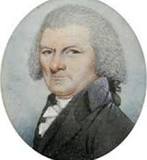March 3 is National Cold Cuts Day
 1803 The impeachment trial of a U.S. Judge, John Pickering. He was the first federal official to have been removed from office upon conviction by impeachment on charges of drunkenness and unlawful rulings. Pickering’s behavior on the bench was often marked with “ravings, cursings, and crazed incoherences” brought on by drink and growing mental instability. President Jefferson suggested to Congress that Pickering’s bizarre behavior amounted to an impeachable offense. There was no other way to remove a federal judge who was no longer fit to serve but who refused to resign. In March 1803 the House of Representatives voted 45-8 to impeach Judge Pickering. The Senate convicted Pickering one year later, removing him from office. This was no small matter. The Constitution limited this power to the impeachable offenses of “treason, bribery, or other high crimes and misdemeanors.” Pickering may have been wholly unfit to serve on the bench, but he had not committed an impeachable offense. Some feared that if he could be removed for raving and cursing, then Congress would impeach other judges for political offenses.
1803 The impeachment trial of a U.S. Judge, John Pickering. He was the first federal official to have been removed from office upon conviction by impeachment on charges of drunkenness and unlawful rulings. Pickering’s behavior on the bench was often marked with “ravings, cursings, and crazed incoherences” brought on by drink and growing mental instability. President Jefferson suggested to Congress that Pickering’s bizarre behavior amounted to an impeachable offense. There was no other way to remove a federal judge who was no longer fit to serve but who refused to resign. In March 1803 the House of Representatives voted 45-8 to impeach Judge Pickering. The Senate convicted Pickering one year later, removing him from office. This was no small matter. The Constitution limited this power to the impeachable offenses of “treason, bribery, or other high crimes and misdemeanors.” Pickering may have been wholly unfit to serve on the bench, but he had not committed an impeachable offense. Some feared that if he could be removed for raving and cursing, then Congress would impeach other judges for political offenses.
Fourteen federal judges have been impeached in more than 200 years, seven of which were acquitted by the Senate and seven removed from office.
I found it interesting that the last two impeachment trials were Samuel B. Kent, Judge, U.S. district court for the Southern district of Texas who was impeached June 19, 2009, on charges of sexual assault, obstructing and impeding an official proceeding, and making false and misleading statements; and G. Thomas Porteous, Jr., Judge, U.S. district court, Eastern district of Louisiana, impeached March 11, 2010 on charges of accepting bribes and making false statements under penalty of perjury. Kent resigned and Porteous was removed from office. In both cases one of the Democratic impeachment managers was Adam Schiff of California.
In 1805 the Louisiana-Missouri Territory forms.
In 1817 the Mississippi Territory was divided into Alabama Territory & Mississippi.
The U.S. Congress passed the Missouri Compromise March 3, 1820, allowing slavery in Missouri
March 3, 1836 – the signing of the Texas Declaration of Independence, officially separating from Mexico, and creating the Republic of Texas.
1837 – US President Andrew Jackson and Congress recognize Republic of Texas
 Florida Admission day in 1845, becoming the 27th state
Florida Admission day in 1845, becoming the 27th state
- Capital: Tallahassee
- Nickname: Sunshine State/Peninsula State
- Bird: Mockingbird
- Flower: Orange Blossom
- Tree: Serbal palm
- Motto: In God we trust
See our page for the state of Florida for more interesting facts and trivia about Florida.
Birthday of Alexander Graham Bell (March 3, 1847), inventor of the telephone.
Territory of Minnesota organized in 1849.
Idaho Territory formed in 1863.
1875 – Georges Bizet’s opera Carmen premiered at the Opéra-Comique in Paris where (Wikipedia) “its breaking of conventions shocked and scandalized its first audiences.”
“Carmen has since become one of the most popular and frequently performed operas… the “Habanera” from act 1 and the “Toreador Song” from act 2 are among the best known of all operatic arias.”
1921 – Toronto’s Dr Banting and Dr Best announce discovery of insulin.
1923 – TIME magazine was published for the first time.
 March 3, 1925 – Mount Rushmore National Memorial is centered on a sculpture carved into the granite face of Mount Rushmore in the Black Hills in Keystone, South Dakota. Sculptor Gutzon Borglum created the sculpture’s design and oversaw the project’s execution from 1927 to 1941 with the help of his son, Lincoln Borglum. The project received Congressional approval on March 3, 1925.
March 3, 1925 – Mount Rushmore National Memorial is centered on a sculpture carved into the granite face of Mount Rushmore in the Black Hills in Keystone, South Dakota. Sculptor Gutzon Borglum created the sculpture’s design and oversaw the project’s execution from 1927 to 1941 with the help of his son, Lincoln Borglum. The project received Congressional approval on March 3, 1925.
Anniversary of the adoption by Congress in 1931 of The Star Spangled Banner by Francis Scott Key as the national anthem of the United States.
